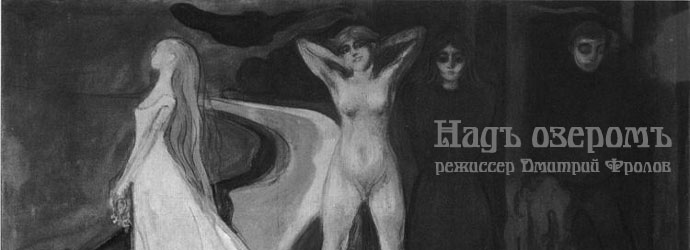
"Above The Lake"Russia, 1995(silent), 2006(music), 35 mm, 10 min.
Music: Sergey Oskolkov Cast: Peter Kremis, Natalya Sourkova, Romil Rachev
This is an attempt to penetrate info poetic world of russian poet Alexander Blok (1880-1921) using cinematographic means of that time. A film was shot at Ozerki (near St.Petersburg)-his beloved place. Being poetical and philosophical reflection of a perception of Blok's poetry, the film at the same time renders an atmosphere of legendary "Silver Age" of russian poetry.
Silent film that seems to have been shot at least 90 years ago and is a brilliantly made style exercise with a nineteenth-century theme of the tormented poet (possibly Alexandr Blok?), who sees the object of his desire loom up in an opium-inspired dream.(Rotterdam Film Festival). |